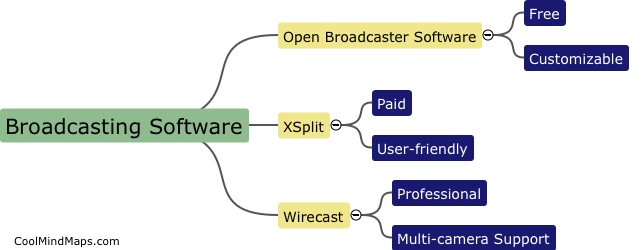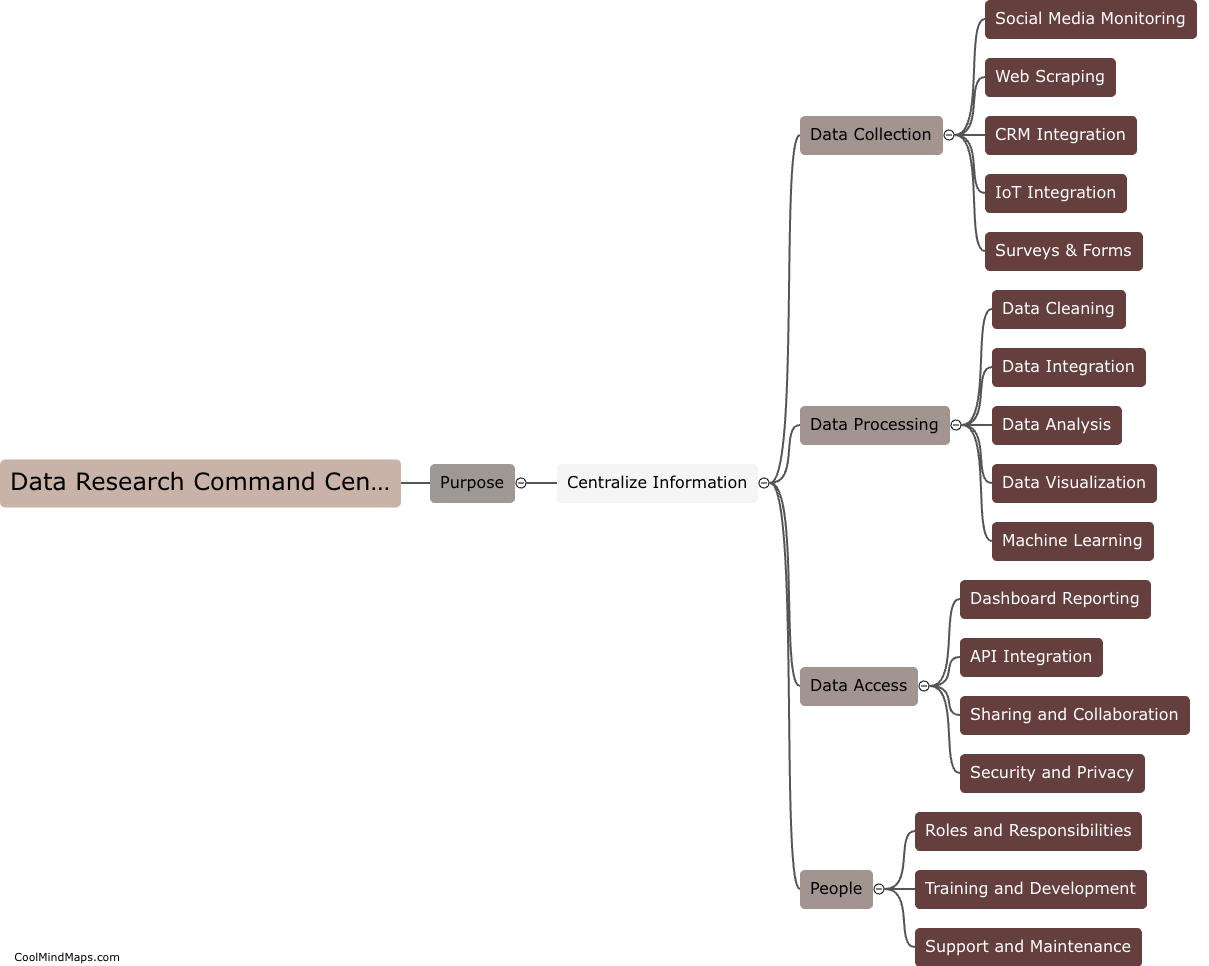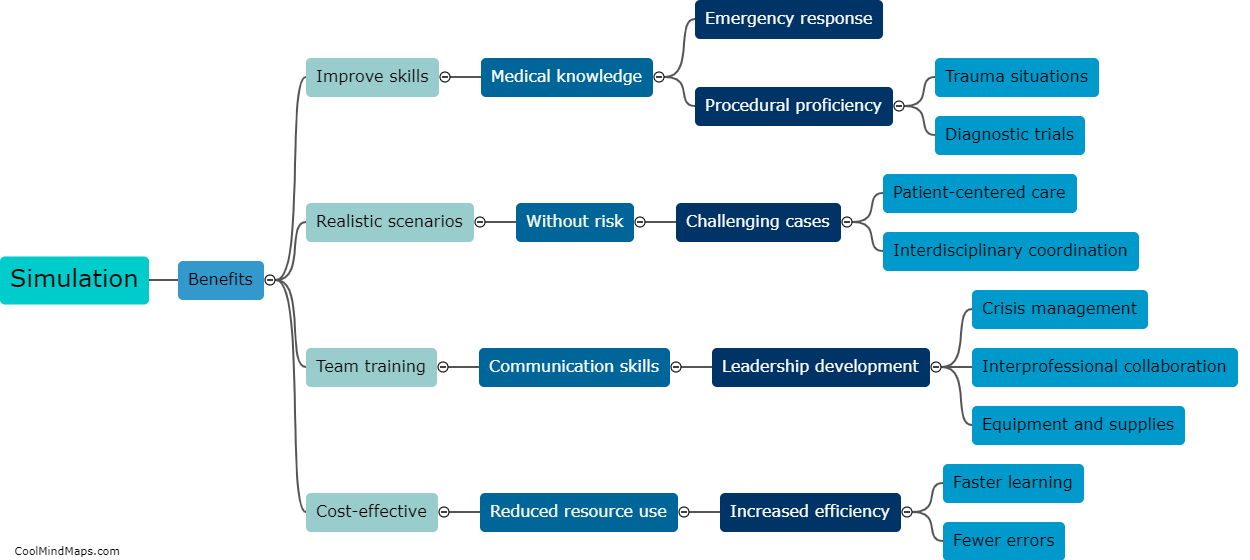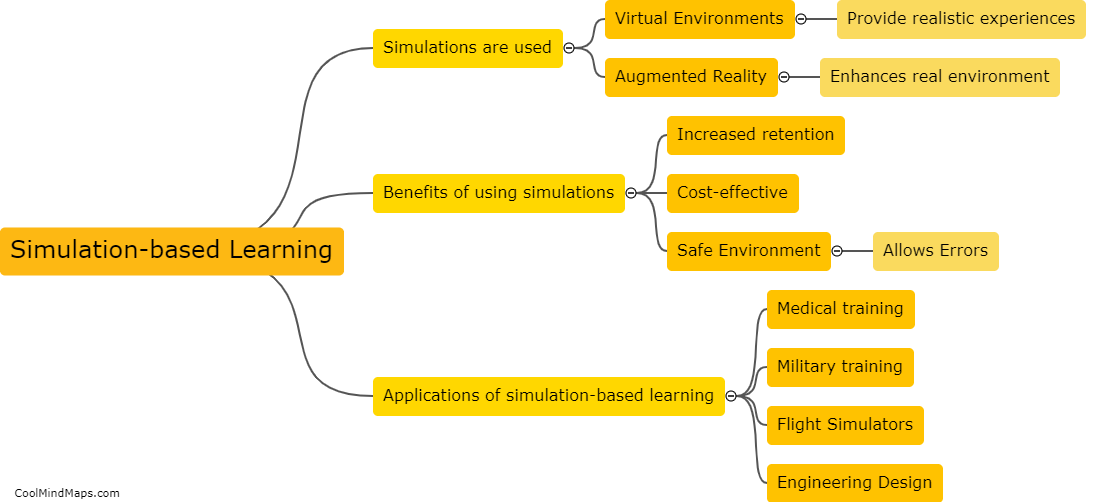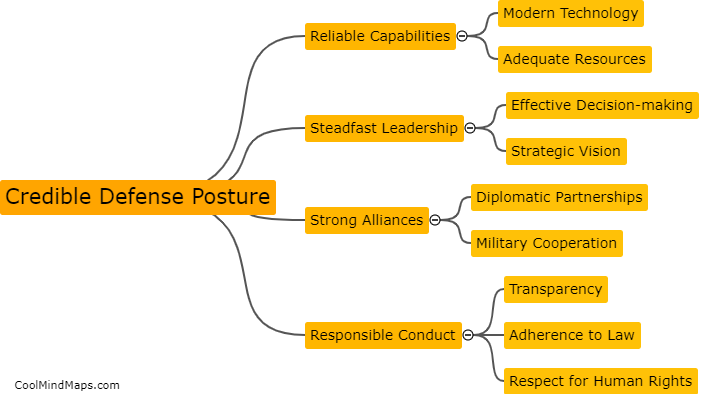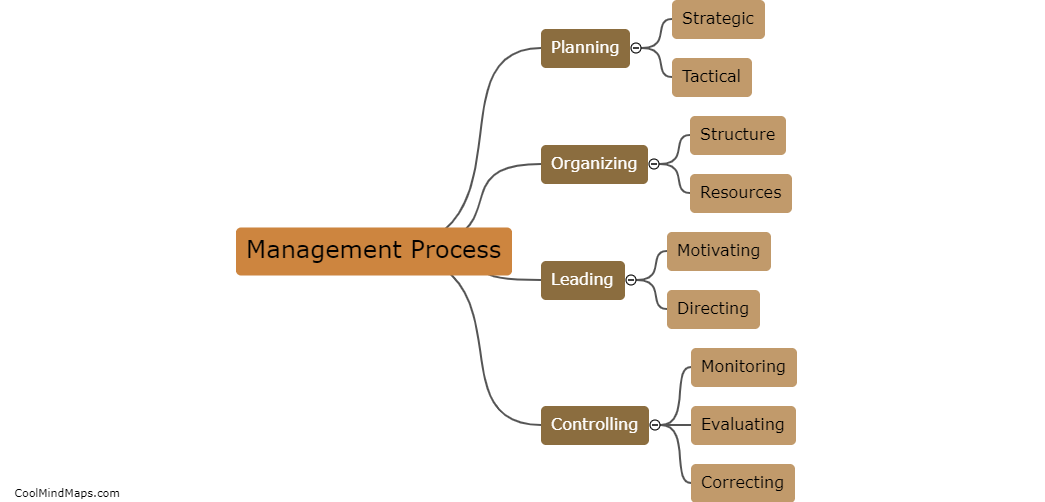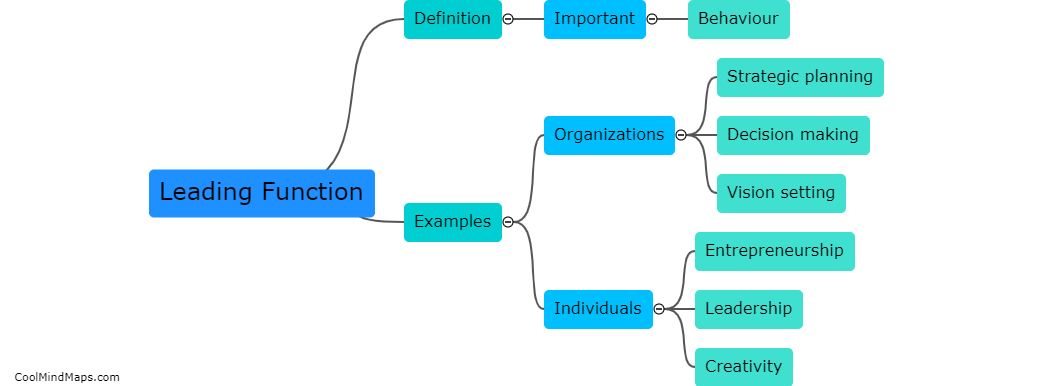How can simulation be integrated into clinical curriculum?
Simulation can be an effective tool to enhance the clinical curriculum for healthcare professionals. It facilitates the development of practical skills, knowledge retention, and critical thinking. Integrating simulation training into the curriculum can help learners to demonstrate their abilities in a safe environment, which is essential for gaining expertise in clinical care. Moreover, simulations can be tailored to meet the specific needs of learners and can cover a wide range of clinical scenarios. The incorporation of simulation activities into the curriculum creates experiential learning opportunities that help learners apply theoretical knowledge to real-world situations. It is a cost-effective and efficient way to ensure that healthcare professionals receive the best possible education and training to provide safe, high-quality care to their patients.

This mind map was published on 2 May 2023 and has been viewed 105 times.


